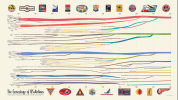- Joined
- Jul 29, 2011
- Messages
- 1,018
- Display Name
Display name:
MountainDude
All I hear is bad news, like this one:

 www.flyingmag.com
www.flyingmag.com
Can someone tell us about the positive side of such businesses?

Terminated Volato Employees File Class Action Lawsuit
The lawsuit alleges Volato violated U.S. labor law when the company laid off 233 employees without providing advanced notice.
Can someone tell us about the positive side of such businesses?

